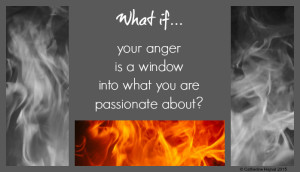 Wanting to find your passion for that next career, but not feeling it?
Wanting to find your passion for that next career, but not feeling it?
Wanting to make changes, but not sure what to move towards?
When my grandmother first went into the hospital at the end of her life she was in a room with two beds. It seemed the polite thing to do to say hello to the person in the other bed, particularly when he had the bed closest to the door. So each time I came into or left the room I acknowledged the man with a hello.
My grandmother was eventually moved to her own room. For whatever reason, I made a decision to keep visiting the gentleman in her old room. It became clear that other visitors were sparse, that he too was terminally ill, and that he welcomed the conversation.
I came away from that experience with very mixed emotions. Part of me was incredibly sad. I was in anticipatory grief, leaving my Grandmother’s bedside knowing I would not see her alive again. I was also angry.
I could not stop thinking about the gentleman who was dying and who had had limited attention. I felt a sense of injustice. No one should die alone!
I did not know what palliative care was at that time, other than my grandmother had been declared palliative and I knew that meant she was dying. When, how, what it might look like – I had no insights.
My anger both for the man in his aloneness, and anger in judgement of myself – for not knowing how end of life worked – sparked me to look into hospice and palliative care and step into training.
I now know that palliative care and palliative wards tend to operate differently than other parts of the hospital. It is, generally speaking, about comfort care rather than curative care. My hope is that the gentleman I paid several visits to was indeed able to experience comfort in the care he received while at the hospital.
Palliative care wards also tend to have volunteers who come and visit on a daily basis. I have also come to appreciate that some individuals do want to be alone as they draw to the end of their life. Others welcome connection. The gentleman clearly wanted the hellos.
Sometimes anger is a signal that something or someone matters.
Perhaps a value you hold dear is being violated and it is sparking anger. Perhaps you see someone else’s pain and you want to alleviate it, you want to help them, but you don’t know how. Anger or frustration, a sense of fire in your belly, might just be a call to step in, to be curious and follow your energy.
While I have been in and around loss, death, and grief in a professional capacity for several years, I’m still surprised to find myself in this space. When I left academia I was a business school professor. I have advanced degrees in engineering. None of that is about grief or bereavement support. Now I help people step into some pretty tough circumstances in their lives. And I love what I do. The surprise to find myself doing this work is paradoxically accompanied by a deep knowing I’m in a space I’m meant to be in.
It all began in anger, a sense of injustice, self-judgement, and questioning.
So what might your anger be igniting in you?
The next time you are angry at a circumstance, feeling a sense of injustice, or going on about how the system needs to change, I invite you to take a step back and ask what your anger is asking of you.
Perhaps you too will uncover a career calling, or a new way of being in the world.
Text and Images Copyright © Dr. Catherine Hajnal 2015
